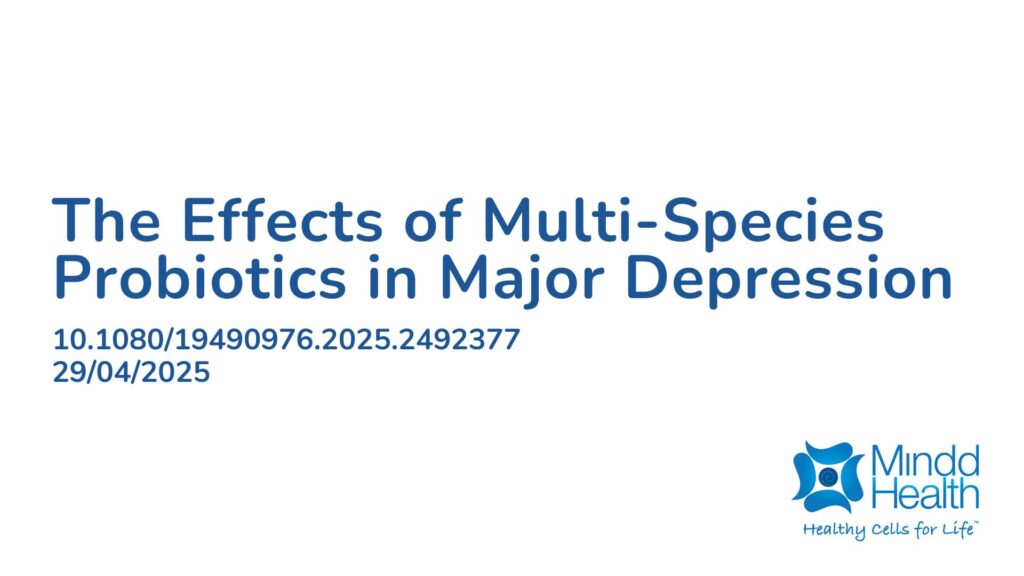Summary:
The microbiota-gut-brain axis (MGBA) enables communication between the gut and brain, largely via the vagus nerve (VN). The VN senses microbial activity and metabolites, transmits signals to the central nervous system, and helps regulate inflammation. Individuals with major depression (MD) often have altered gut microbiota and elevated inflammatory markers. Previous studies indicate that gut microbiome diversity, particularly the presence of butyrate-producing bacteria, correlates with better VN function and lower inflammation. Probiotics have shown promise in improving depressive symptoms, but human studies investigating their effects on the gut microbiome and VN function are limited. This study examined the impact of a multi-species probiotic on VN function in 43 MD patients and 43 healthy controls. Participants received either the probiotic or placebo twice daily, and stool and serum samples were collected at baseline, 7 days, 28 days, and 3 months. VN function and gut microbiota composition were analyzed throughout the study. After three months, MD patients taking probiotics showed improved morning VN function compared to controls. They also exhibited increases in specific gut bacteria and reported better sleep outcomes, including reduced sleep latency and less reliance on sleep medication. These findings suggest that multi-species probiotics may support physiological regulation in MD, potentially through VN modulation, offering hope for alternative therapeutic strategies.
Abstract:
Major depression (MD) significantly impacts individual well-being and society. The vagus nerve plays a pivotal role in the gut-brain axis, facilitating bidirectional communication between these systems. Recent meta-analyses suggest potential antidepressant effects of probiotics, although their mechanisms remain unclear. This study aimed to assess the impact of a multi-species probiotic (OMNi-BiOTiC® STRESS Repair) on vagus nerve function in 43 MD patients and 43 healthy controls (HC). Participants received either probiotics or placebo twice daily. Serum and stool samples were collected at baseline, 7 days, 28 days, and 3 months. Vagus nerve (VN) function was evaluated using 24-hour electrocardiography (ECG) for heart rate variability (HRV), alongside stool microbiome analysis via 16S rRNA sequencing. After 3 months, MD patients receiving probiotics demonstrated significantly improved morning VN function compared to HC. MD participants who were in the probiotic group showed a significant increase in Christensellales, particularly Akkermansia muciniphila along with improved sleep parameters (use of sleep medication, sleep latency) as measured by the Pittsburgh Sleep Quality Inventory (PSI). This study highlights potential physiological benefits of probiotics in MD, potentially mediated through VN stimulation. Understanding these mechanisms could lead to novel therapeutic approaches for MD management.
Article Publication Date: 29/04/2025
DOI: 10.1080/19490976.2025.2492377



